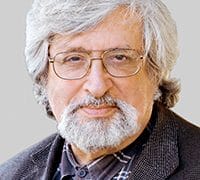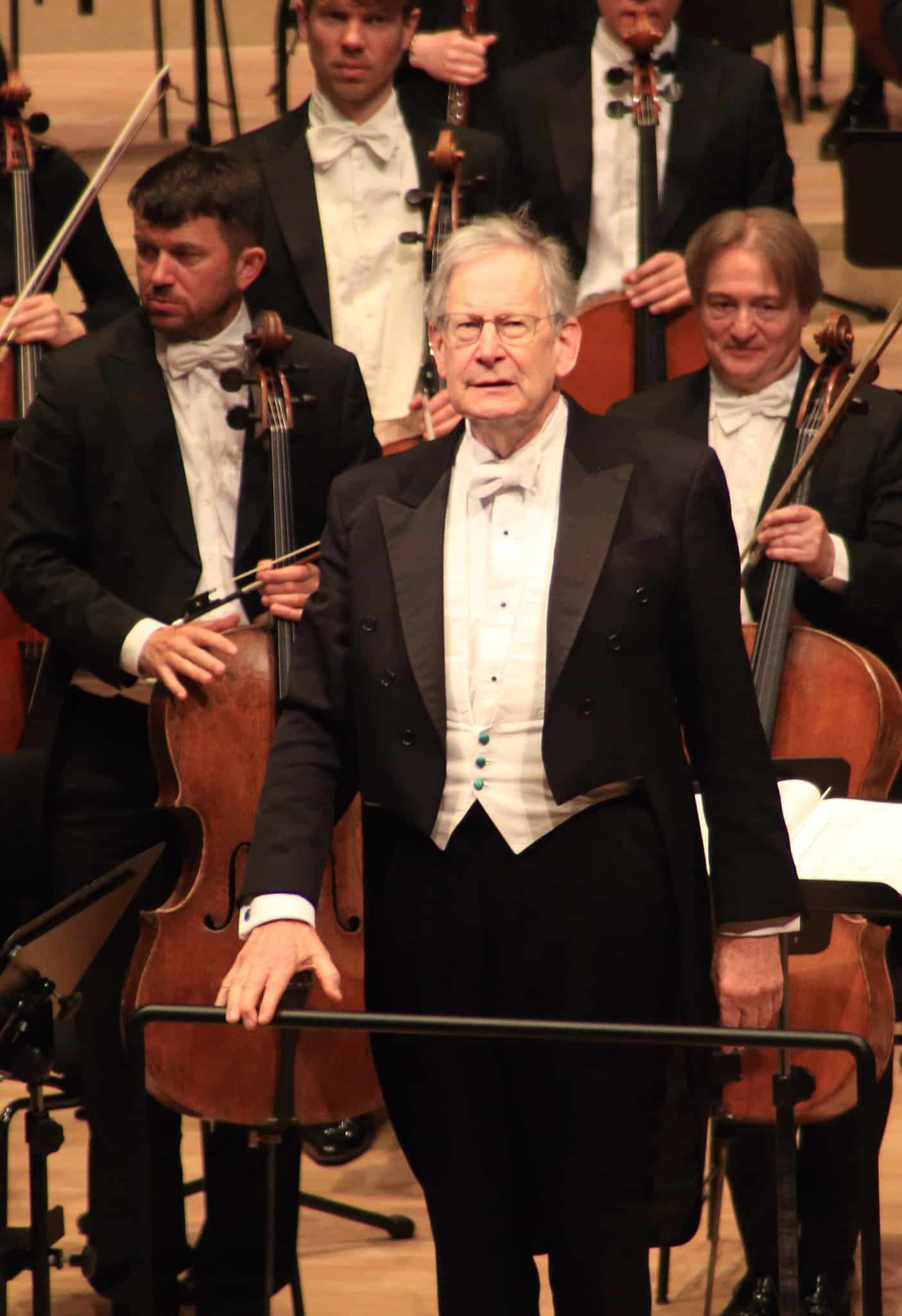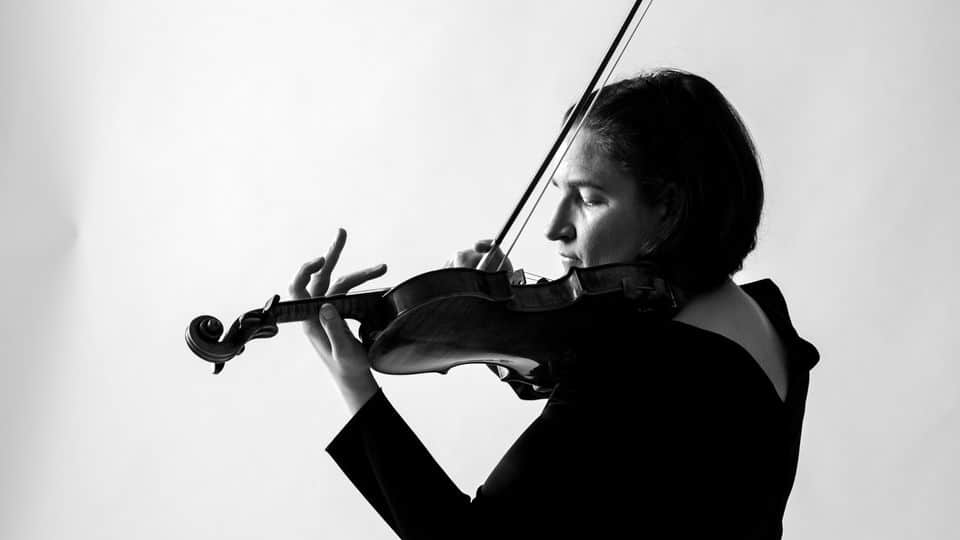Combative US musicologist wins $450,000 award
mainThey have announced the Kyoto awards in Japan.
Three winners each receive a diploma, the 20-karat gold Kyoto Prize medal and prize money of 50 million yen ($449,624).
The 2017 winners are Dr. Takashi Mimura, a Japanese semiconductor engineer and honorary fellow at Fujitsu Laboratories Ltd., Dr. Graham Farquhar, an Australian plant physiologist and distinguished professor at Australian National University, and Dr. Richard Taruskin, an American musicologist and professor emeritus at the University of California, Berkeley.
According to the citation, Taruskin is ‘a Musicologist and Critic of Prodigious Erudition Who Has Transformed Contemporary Perspectives on Music through Historical Research and Essays That Defy Conventional Critical Paradigms’.
And so he does.






Taruskin, Lebrecht… I will put a white beard to see if I learn something about music
Here is a good critique of the entire profession of musicology.
“The profession of musicology, enveloped within the ethos of technical rationality, allows its adherents to bypass deepening an experience beyond the naive level of acquaintance that constitutes their undergraduate training and to climb a ladder of status and acquire instead a position of authority in an unequal regime that values as superior a modality of knowledge obsessed with abstraction, disengagement, and verbalization, over the type of knowledge that arises in concrete perceptions of doing what is real in real-world, performance situations…. Musicologists are programmed from the outset of their academic deformation not only to suppress performing (how-to knowledge), to look down upon it and those who undertake it as an inferior form of engaging with music; but also to uphold as superior, as more prestigious, those forms of knowledge about music (knowledge about) which can be produced without any recourse to actual music making.”
https://www.ocf.berkeley.edu/~repercus/wp-content/uploads/2011/07/repercussions-Vol.-10-No.-1-Parmer-Dillon-R.-Musicology-as-Epiphenomenon.pdf
A musicologist is a man who can read music but can’t hear it. Sir Thomas Beecham.
Oh, for the days when musicologists would actually bother to read music…
I had to flee from the musicological community. It’s like one of those encased hot air blowers used to create dried fruit….
Indeed, Sir Thomas was spot on. See what Ben Britten said of Stravinsky’s The Rakes Progress. I liked the opera very much. Everything but the music.
I like the Rake’s Progress, but Stravinsky wasn’t the type of composer to fully capture the remarkable beauty of Auden’s libretto. I’d like to know what Taruskin had to say about that, if anything. Must do some research…
Stravinsky’s “The Rake’s Progress” is among my favorite pieces of art created by anyone in any genre….
That is NONSENSE. It entirely depends upon the practitioners themselves. Because music is a ‘soft’ art form, i.e. not entirely rational and failure proof, musicology is flexible and depends upon the musical insights of the professional. There are good and bad musicologists. Taruskin is a brilliant, though probably unpleasant man (according to some stories), and his works upon Stravinksy (S and the Russian Tradition) and his monumental Oxford History of Music are very impressive achievements. In the latter work he has had the courage to criticize the modernist postwar ideologies and prick through the ridiculous claims of ‘progressiveness’ that those avantgardists threw around to protect themselves from rational critique. Taruskin is an example of the excellent musicologist who actually makes a contribution to the understanding of the art form. A nice counter ecample is Arnold Whittall, who writes these arrogant, snobbish tomes, parading his library but also his lack of understanding, looking down upon music and musicians, and blundering from one crazy statement to the other (like claiming that there are no great works written in the 20th century) and yet, taken seriously by respectable publishers (which raises the suspicion that the editors never carefully read their stuff). As for musical understanding and musicality perse, I remember Dr Deathridge, specialist in Wagner and being very happy about that, playing a short Bach piece on the piano for us students at Cambridge to demonstrate some intricate structural complexity, and I have seldom heard someone playing a musical instrument with the musical sensitivity and perception of a nazi butcher or rust belt rugby player – showing that rational knowledge is quite distinct from musical understanding. So, between these extremes – the serious music scientist and the arrogant charlatan – there is a very wide range of sophistication in the field. Such absurd critique upon the entire profession can only be considered as coming from very underdeveloped and ignorant circles with a populist envy towards intellectual achievement. Very embarrassing to see it presented as ‘a good critique’.
The clues to any antipathy directed towards Taruskin may be found in your own words, John. He obviously isn’t PC when it comes to ‘modern music’ and has offended the storm-troopers and Thought Police within academe:
“In the latter work he has had the courage to criticize the modernist postwar ideologies and prick through the ridiculous claims of ‘progressiveness’ that those avantgardists threw around to protect themselves from rational critique.”
Ideology indeed.
John,
Musicologists too often forget that ‘Aisthitikos’ is the ancient Greek word for that which is ‘perceptive by feeling’. The pre-linguistic, embodied, or feeling-based aspect of perception.
Aisthēsis is the sensory experience of perception. The original field of aesthetics is not art but reality — corporeal, material nature.
Aesthetics is born as a discourse of the body. It is a form of cognition, achieved through taste, touch, hearing, seeing, smell — the whole corporeal sensorium. One might rather place aesthetics within the field of animal instincts or our creaturely life.
If that were true, rugby would be an art form and Andy Warhol a great artist.
It seems to be more appropriate to relate aesthetics to mimesis, as formulated by Aristotle: the representation of reality, including the reality as experienced by man, revealing the dynamics that are hidden in the world (Poetica). Where this interpretation involves artistic manipulation, it becomes art.
But I think we can all agree that musical beauty is judged by a musical faculty that is autonomous, anomalous, and radically unique, and that the rewards and meanings of music are entirely self-contained. The possession and operation of the musical faculty requires no specific character or intellectual traits; its objects are isolated from extra-musical interests and concerns. While our reaction to visual forms, even in abstract painting, is informed by patterns we find in visual perception of the world, our reaction to melodic forms is completely abstract and unconditioned by resemblance to normal sounds.
Aesthetic sensitivity must be an independent ability. Aesthetic sensitivity cannot be explained in terms of cognitive ability. Aesthetic properties are always and only perceptual properties. The ability to appreciate aesthetic value has a genetic foundation in the structure of the nervous system.
To Aaron, above:
Indeed. Music is non-conceptual in the sense that it does not directly refer to outward reality. It refers to inward experience of reality, including emotional responses to the world, which is demonstrated by (good) opera, where the music follows its own, independent musical logic while in the same time, expressing what happens in the ‘inside’ of what we see on the stage.
Steven Semes talks about the ‘holistic nature of human perception’ in his remarkable essay about the underlying unity of the arts, which touches on this subject:
http://www.futuresymphony.org/le-violon-dingres-some-reflections-on-music-painting-and-architecture/
Taruskin is well-known for his performances of early music, having been choral conductor of the Columbia University Collegium Musicum; he also played viola da gamba with the Aulos Ensemble in late 1970s to late 1980s. He has written extensively about performance practice informed by his own experiences; he is hardly the type of musicologist described above. I am a music theorist, and all the musicologists and theorists I have known have strong performance backgrounds; it is sad that today, such performance experience is no longer necessary for a career as a musicologist or theorist. But one cannot place Taruskin in that category; his musical sensitivities, perceptions, and knowledge (of all areas of music!) are prodigious and his award is well-deserved.
A good description of a bogus rhetorician is one who writes in 100 words what can usually be written in 10. Its writer concentrates on the abstract, with much use of casuistry, hyperbole, generalization and insult. In short, the writer of that item on musicologists could be describing what any professor of English literature does; he/she is an academic who studies but does not CREATE great works of literature. That field of endeavour has deepened our understanding of the craft of great writing, its creator and the milieu of its creation. And the literary academic doesn’t even have to read the works aloud! If he/she were to move across to the discipline of musicology that would require the ability read and possibly transcribe medieval musical texts and to speak at least 3 foreign languages. That is, if the person was a real musicologist and not a bogus modern one from a fifth order (or less) university or music school.
I doubt D.F. Tovey or H.C. “Robbie” Landon would find that job aforementioned description amusing.
Madam, here are two of my famous quotes you might find amusing with regard to these discussions.
When I came hither first, I found, among the English, many good players and no composers; but now, they are all composers and no players.”
About the time Handel became blind, his surgeon, Samuel Sharp (eye surgeon, Guy’s Hospital), asked him if he was able to continue playing the organ in public, for the performance of oratorios. Handel replied in the negative.
Sharp recommended John Stanley (a blind composer and performer), as a person whose memory never failed; upon which Handel burst into a loud laugh, and said: “Mr. Sharp, have you never read the Scriptures? do you not remember, if the blind lead the blind, they will both fall in the ditch?”
Fifth order? This also reflects the American musicologist’s mindset — the suffocating ethos of superiority and one-up-manship. As Chomsky has noted, the principle function of elite schools is socialization in elitism itself. There is hardly a profession more diseased by this mentality of superiority than American musicology. It comes largely out of our preppy traditions of British classism. Continental musicology does not suffer from these problems.
I regard Chomsky the way Christopher Hitchens did. Enough said.
To address the problems with American musicology would take a bit more than saying you disagree with Chomsky. If anything, your facile dismissal might be yet another illustration of their classist, waspy professional culture and all of its hidden assumptions….
Mr Chomsky would surely be delighted in making his point also in Musicology. If just someone had asked him before…
His two volume work on Stravinsky is excellent, highly recommended.
That may be so, but Stravinsky’s ” Dog biscuit music” will always remain unbearable! The human brain cannot follow wrong note music at all. Have you heard of JM Hauer? He invented a 12 note method before Schoenberg and it is bearable. Like being in very wobbly tonal land, here are some links to listen to.
https://www.youtube.com/watch?v=Ku4eXxMpjRM
https://www.youtube.com/watch?v=IpNDApXcY1c
https://www.youtube.com/watch?v=HEZcXSuSQmM
To prefer Hauer to Stravinsky is something like preferring to eat wet sand to a pizza bolognese.
Correct both are going down blind alleys. What do makes of this song then, a classic.
https://www.youtube.com/watch?v=gvIgPl5YE9A
It’s a classic in Ireland which is something entirely different from what the rest of the world associates with the term.
Pizza bolognese that’s been lying forgotten in the refrigerator for a couple of weeks.
What about Harold Truscott, ever heard of him? He was not a “wrong noter”, he are some sonatas.
https://www.youtube.com/watch?v=CApY_vhnzr4
What instrument does a musicologist actually play? Does anyone know?
Explain clearly why after Johann Strauss (Sohn) died in 1899, all composed music afterwards was rubbish. A 100 years on just wrong noters, VWs owpat symphonies, john cage’s brick, Stockhausen etc all blind alleys Rather odd, Not a tune among them.
There was plenty of wonderful music written after 1899.
Yeah 20th Cent music really sucks, I wonder why. I once went to a free concert at the Sonic Arts Centre opened by Stockhausen at QUB, it was 80 mins of hell, odd noises from two speakers positioned left and right of the stage. I thought it was feedback from the Amp!
Maybe you just heard the wrong kind of last century music, because there was certainly a lot of superb music written in the 20th century.
There was indeed a lot of great music written after 1899, but for me it became fairly rare after about 1922. Since then there certainly is some great stuff, but the dual dominance of Stravinsky’s neoclassicism and of Schoenberg’s twelve-tonism were disastrous. Stravinsky himself was the main exception to that, in a number of his works, but his many imitators were weak.
Agreed. Taruskin’s books are fascinating.
He’s a scholar/musicologist I admire.
+1
Very good writer. Nothing I’ve read of Taruskin’s has bored me.
In Taruskin’s case, well deserved, plain and simple. Sadly, some apparently have no idea of the enormous, essential importance of musicology which, by the way, encompasses various scholarly disciplines, including musical analysis, which is fundamental to performance.
NL desperately punching up by going after Taruskin. Wow – maybe a Trump diatribe can salvage your honor. Be quick!!!
Congratulation to Richard Taruskin for getting such prestigious price. We got aquaint at Prokofiev panel at UC Berkeley. and he admired that I read so many books about SP. We had a nice talk on Soviet period in music. RT’s the best specialist on history of Russian music over musicologist in Russia. Norman call him combative out of envy for such recognition of RT
I am a conductor and an erstwhile musicologist. The latter is a result of intensive study of musical scores that have eventually turned into articles and extensive papers. That said, I read Taruskin when I know that I want my mind stimulated and preconceived notions challenged. Say what you will about the man’s character (and I have never met), it’s difficult to savage his intellect.
I think RT is a very sensitive man, the photo above looks like someone who expects a bang on his head from collegues any moment. But of course it can also be interpreted as a casting photo for a serial killer movie. If you read about the history of music history, you see change all the time. But people who dare to think independently from received wisdom, are almost always severely attacked by the conformists. RT is an independent thinker and hence, the prize is entirely deserved.
One of the admirable things RT did in his Oxford History, is widening the context of the symphonic tradition of the 19th century by including non-German symphonists as equally deserving the best treatment instead of being written about as marginal entities trying their best to imitate Beethoven but failed, by letting their music be infected by local folky traditions (Tchaikofsky, Dvorak etc.).
Bravo. Great comments about conformists, of which there are now armies. Intellectually arid. Dull. Lazy.
Is there a musicologist in the house, who can diagnose why classical music effectively died out after Johann Strauss II? The 20th century has left us with 7 tuneless wonders, Schoenberg, Stravinsky, John Cage, Ligiti, Stockhausen, Boulez, Rihm. In Ireland we have a simple rule, if it has no tune it cannot be music. Here is some real music.
https://www.youtube.com/watch?v=9h2Qmx2zp4E
Compared to Johann Strauss II, Boru’s hobbit music is primitive; compared with the symphonic repertoire, Strauss II is. Every music has its place but that is not the same place. No musicological advice necessary.
The relative erosion of classical music in the last century is due to disruptive developments in society and the craze for science.
Your query starts with a false premise; therefore, any attempt at a direct answer thereto will also be false.